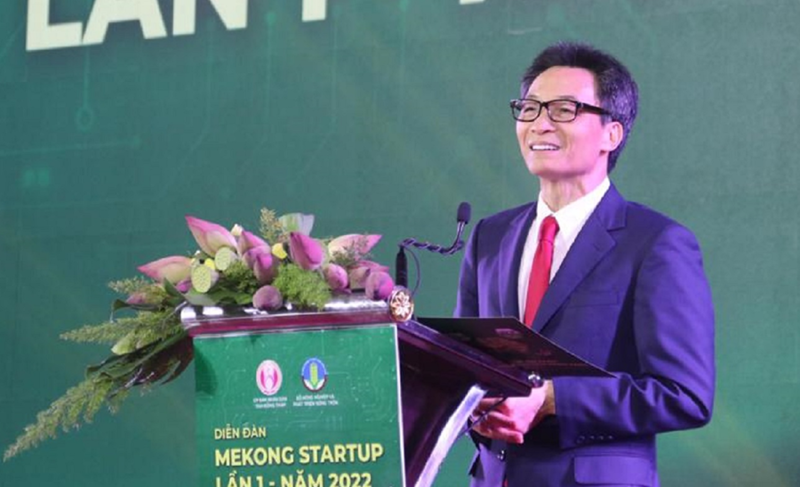The Ministry of Agriculture and Rural Development (MARD) needs to work with localities to identify suitable directions in using land and plant varieties and raising the value of farm produce, Deputy Prime Minister Vu Duc Dam has said.
“This is a crucial point, as the Mekong Delta is also in need of certain policies to contribute to ensuring national food security,” he told the Mekong Startup Forum held on December 20 in the Mekong Delta province of Dong Thap.
Vietnam’s commitments to cut greenhouse gas emissions are spoken of highly around the world, he went on, which demonstrates the country’s responsibility towards the global environment.
“Vietnam understands that, besides ensuring food security for 100 million people at home, the country must make efforts to contribute to ensuring global food security,” he said.
At COP26, apart from a pledge to reach its net-zero carbon emissions target by 2050, Vietnam also joined the Global Methane Pledge, to cut methane emissions by 30 per cent by 2030, and the Glasgow Leaders’ Declaration on Forests and Land Use.
At the recent COP27, countries discussed plans to soon cement commitments. Vietnam’s agro-forestry-fishery sector must therefore transform quickly towards green growth, the circular economy, and reduced greenhouse gas emissions, the Deputy Prime Minister said.
Meanwhile, Deputy Minister of Agriculture and Rural Development Tran Thanh Nam said the Mekong Delta is one of the country’s seven key economic regions, accounting for 50 per cent of total rice production, 95 per cent of rice exports, 65 per cent of aquaculture production, 60 per cent of fish exports, and 70 per cent of fruit output.
It is estimated that the agriculture sector accounts for 19 per cent of the country’s total greenhouse gas emissions.
“It is essential to develop smart agriculture that adapts to climate change,” the Deputy Minister said. “Circular agriculture is also a priority for the agriculture sector, which highlights recycling and reuse. If agricultural and fishery by-products are well treated, that would result in huge resources, rising revenue for the sector, and jobs for local people.”









 Google translate
Google translate